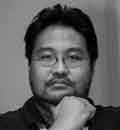Second of three parts
ON Sept. 19, 2024, I delivered a plenary lecture for the Philippine Historical Association's (PHA) annual conference at the University of the Philippines Los Baños. I talked about the association's history in relation to public history. Although today, the PHA has become more diverse when it comes to themes of the annual conference, for many years it had the reputation of being focused on teacher-training rather than production of knowledge or academic content. My argument was that this should not be surprising because despite having been established by the heavyweight academic historians of their day in 1955, the PHA always had public history in its DNA, especially if we expand the definition of public history to also include engagement with government, teaching and textbook writing, which are front lines of history education but not formally academic.
Continue reading with one of these options:
Ad-free access
P 80 per month
(billed annually at P 960)
- Unlimited ad-free access to website articles
- Limited offer: Subscribe today and get digital edition access for free (accessible with up to 3 devices)


